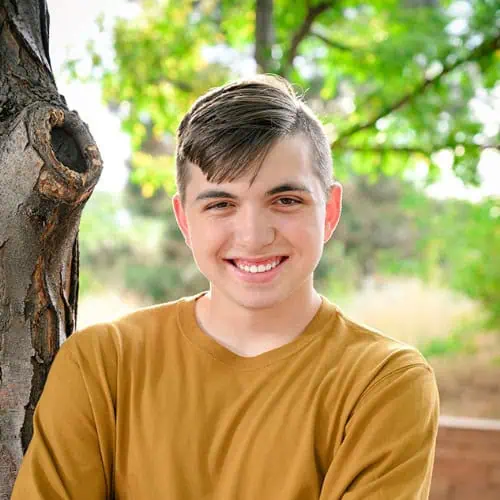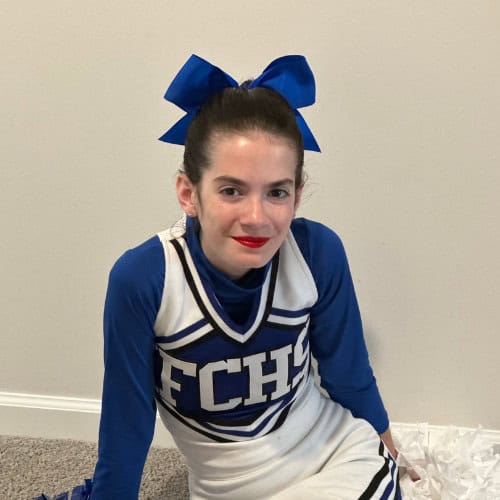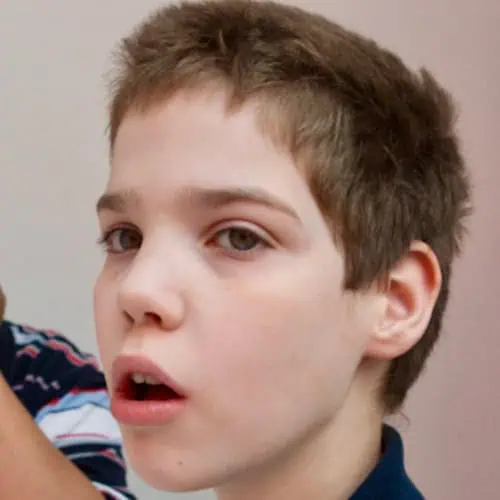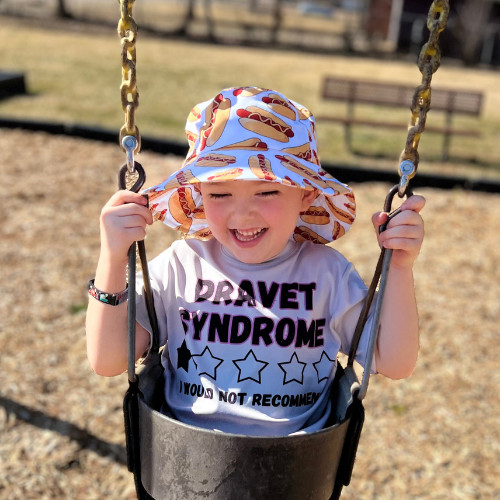I am the mother of 28 year-old Brian. We live in Knoxville, TN. I was a college French professor at Carson-Newman University, until I had to quit in 2000 because of Brian’s seizures and me being an hour away. My husband Tom was a research physicist at Oak Ridge National Lab. His research took a different direction when 18-month old Brian was hospitalized and put on a respirator in PICU at East TN Children’s Hospital following a seizure when he aspirated on medication. After spending 14 days on a respirator, Tom thought there would be a better way to monitor all of one’s vitals using a bio-telesensor rather than all the wires that were then in use. As a family, we like to go fishing, play tennis, camp, and swim together. Brian loves participating in all sports, and competes in Special Olympics. He is a puzzle fanatic and loves all college sports, especially football. Oh, he also loves NASCAR. We love spending time together and with family and friends. Our favorite vacation is to go to Edisto Beach, SC, with extended family.
When did Brian’s seizures begin?
Brian’s first seizure was at 4 months. The early days were a nightmare roller coaster ride of seizures, the unknown, wanting to know the reason for them, ambulance rides, ER visits, stays in the PICU of East TN Children’s Hospital, status epilepticus many times, searching for answers, visiting specialists at the Cleveland Clinic, Vanderbilt, and in Paris, France. Our pediatric neurologist said it was “idiopathic epilepsy” (no known reason). After trying 20+ different anti-convulsant medicines and doing some research, he said it was probably SMEI (Severe Myoclonic Epilepsy of Infancy). He helped me get an appointment with a specialist in France who confirmed that diagnosis and told me that Brian would probably develop normally until age 6, then regress. He further stated that most children with SMEI (now known as Dravet syndrome) didn’t usually live past the age of 10-12. I sat in his office and cried. Dravet syndrome was confirmed with the genetic test when Brian was 5 years old.
What is your family’s hope for your future? For the Dravet community?
I finally came to terms with the fact that Brian is who he is, and I stopped comparing him to other typically developing children. I found joy in the little things, and in each skill that he mastered. I decided to “let him live his life to the fullest, even if that meant taking some calculated risks. ” I hope that he will one day be able to work at a job in the community with a permanent job coach. He wants to volunteer and to be a productive member of society; however, there are behavior issues and his lack of impulse control.
For the Dravet community, my hope is for a CURE! I hope for continued research into the causes of Dravet syndrome, new treatments, and new medicines. I hope for more occasions for parents to connect with other parents and for us to learn from each other.
What advice do you have for newly diagnosed families?
You are your child’s best advocate in medical treatments, in education, and in life. Rejoice in the small things and in whatever progress your child may make. Let your child LIVE, be willing to take calculated risks. Take care of yourself as caregiver. Take care of your family. Be involved in the Dravet Syndrome Foundation at whatever level you feel comfortable. Seek out opportunities to connect with other Dravet families. Share your story. Stay positive and hopeful.









